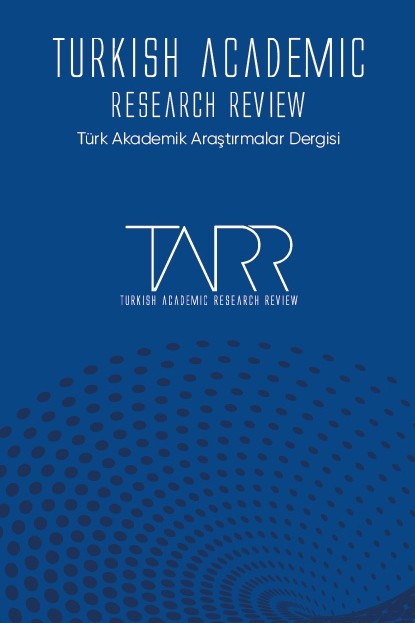Üniteryanizm ve Teslis Eleştirisi
ittifak halinde olsalar da inanç esaslarının temelini oluşturan teslis doktrininin monoteizme uygunluğu hususunda ihtilaf etmişlerdir. Özellikle anti-trinitarian olarak nitelendirilen tevhidci Hıristiyanlar, Hz. İsa’nın gerçek öğretisinin tektanrıcılığı esas aldığını, daha sonraki dönemlerde bu öğretinin dejenerasyona uğradığını iddia etmektedirler. Evrendeki ahenk ve düzenin Tanrının birliğine bağlı olduğunu söyleyerek tevhide vurgu yapan Üniteryanlar, dinî ve ahlâkî bir lider olarak kabul ettikleri İsa Mesih’in tanrılaştırılmasına karşı çıkarlar. Üniteryanlara göre, Eski Ahit’te de Yeni Ahit’te de Tanrı’nın mutlak anlamda bir olduğu vurgulanmaktadır. Dolayısıyla teslis öğretisinin kaynağı Hıristiyan kutsal metinleri değildir. Onlara göre, insanların kendilerini, içindeki yaşadıkları evreni ve Tanrılarını anlama konusunda uzun bir mücadelenin kaydı olarak gördükleri İncil, insan yazarlar tarafından kaleme alınmış en iyi rehberdir. Ancak İncil, tartışılmaz bir otorite değildir. Bu yüzden içeriği akıl ve vicdan ışığında yorumlanmalıdır. Zira İsa’nın kendisi de Kutsal Kitap’ın yanılmazlığından bahsetmemiştir.
Anahtar Kelimeler:
Üniteryanizm, Hıristiyanlık, Teslis, Tektanrıcılık, Tevhid.
Unitarianism and The Criticism of The Trinity
Although Christian theologians are unanimous on the point that Christianity is a religion with a monotheistic character, they have disagreed on the compatibility of the doctrine of the Trinity, which forms the basis of the principles of belief, with monotheism. In particular, monotheistic Christians, who are described as anti-trinitarian, claim that the true teaching of the Prophet Jesus was based on monotheism, and this teaching degenerated in later periods. Unitarians, who emphasize tawheed by saying that the harmony and order in the universe depend on the unity of God, oppose the deification of Jesus Christ, whom they accept as a religious and moral leader. According to the Unitarians, it is emphasized that God is one in the absolute sense in both the Old Testament and the New Testament. Therefore, the source of the doctrine of the trinity is not the Christian scriptures. According to them, the Bible is the best guide written by human writers which people see as the record of a long struggle to understand themselves, the universe in which they live, and their God. But the Bible is not an indisputable authority. Therefore, its content should be interpreted with reason and conscience, because Jesus himself did not mention the infallibility of the Bible.
Keywords:
Unitarianism, Christianity, Trinity, Monoteizm, Tawheed.,
___
- Allen, Joseph Hanry. Historical Sketch of the Unitarian Moviment Since the Reformation. New York: The American Church History Series, X, The Chiristian Literature Co., 1894.
- Ataurrahîm, Muhammed. Bir İslâm Peygamberi Hz. İsa. çev., Kürşat Demirci. İstanbul: İnsan Yay., 1997.
- Bayrakdar, Mehmet. Bir Hıristiyan Dogması Teslis. Ankara: Ankara Okulu Yay., 2007.
- Behiy, Muhammed. İslâm Düşüncesinin İlâhî Yönü. çev., Sabri Hizmetli. Ankara: Fecr Yay., 1992.
- Cevizci, Ahmet. Felsefe Sözlüğü. İstanbul: Paradigma Yay., 2002.
- Chadwick, John White. Old and New Unitarian Belief. Boston: 1894.
- Çelik, Mehmet. Süryani Tarihi. Ankara: Ayraç Yay., 1996.
- Ebu Zehra, Muhammed. Hıristiyanlık Üzerine Konferanslar. çev., Akif Nuri. İstanbul: Fikir Yay, 1978.
- Emerton, Ephraim. Unitarian Thought. New Yrok: The Macmillan Company, 1916.
- Fox, Arthur W. Michael Servetus. London: The Unitarian Library, ty.
- Fox, Arthur Wilson. Michael Servetus. London: ty.
- Frederick Blount Mott, A Short Unitarian History, London, 1906.
- Godbey, J. C. "Unitarian Universalist Assocation". The Encyklopedia of Religion. ed. Mircea Eliade, New York: Macmillan Publishing Company, 1987, C. XV, s. 143-146.
- Güngör, Ali İsra. Vatikan, Misyon ve Diyalog. Ankara: Alperen Yay., 2002.
- Hall, Alfred. The Beleifs of A Unitarian. London: 1947.
- https://www.christianity.com/church/denominations/what-is-unitarianism-discover-the-history-and-beliefs-of-the-unitarian-church.html
- Lacguna, Catherine M. "Trinity". The Encyclopedia of Religion. ed. Mircea Eliade. New York: Macmillan Publishing Company, 1987. XV, s. 53-57.
- Layman, C. Stephen. "Tritheism and the Trinity". Faith and Pholosophy, vol. 5, No. 3, July 1988, 291- 298. Macnamara, John – Reyes, Marie La Palme - Reyes, Gonzalo E. "Logic and the Trinity". Faith and Pholosophy. vol. 11, no. 1, January 1994, s. 3-18.
- Madrigel, Carlos. Hıristiyanların Üçlü-Birlik (Tevhit'de Teslis) İnancı Ne Demek? İstanbul: Müjde Yayıncılık, 1995
- Michel, Thomas. Hıristiyan Tanrıbilimine Giriş. İstanbul: Ohan Yay., 1992.
- Rahner, Karl. "Trinity, Divine". Encyclopedia of Theology. ed., Karl Rahner, New York: Crossroad, 1986. ss. 1755-1771.
- Serveto, Michael. On The Errors of The Trinity, Libri Septem. Tr., by Earl Morse Willbur. Cambridge: Harward Theological Studies, XVI, Harwarad University Press, 1932.
- Swinburne, Richard. "Trinity; A Defense of the Doctrine of the Trinity". Philosophy of Religion. ed., Lane Crcig, New Jersey: Rutgers University Pres. 2002, ss. 556-567.
- Tarrant, William George. Unitarianism. London: 1912.
- Trol, Christian W. Müslümanlar Soruyor Hıristiyanlar Yanıtlıyor. çev., Robert Kaya. İstanbul: t.y.
- Unitarianism: Its Origin and History. Americam Unitarian Assocation. Boston: 1889.
- Weigall, Arthur. Hıristiyanlığımızdaki Putperestlik. İstanbul: Ozan Yay., 2002.
- Willbur, Earl Morse. A History of Unitarianism –In Transylvania, England and America. Cambridge: Harwarad University Press, 1952.
- Willbur, Earl Morse. A History of Unitarianism –Socinianism and its Antecedents. Cambridge: Harwarad University Press, 1945.
- Willbur, Earl Morse. Our Unitarian Heritage. Boston: Beacon Press, 1925.
- Yılmaz, İsmail. Üniteryanizmim’in Doğuşu ve Bunu Etkileyen Dinî Faktörler. Uludağ Üniversitesi Sosyal Bilimler Enstitüsü Yayımlanmamış Doktora Tezi. Bursa: 1994.
- Yayın Aralığı: Yılda 4 Sayı
- Başlangıç: 2016
- Yayıncı: Mehmet ŞAHİN
Sayıdaki Diğer Makaleler
Dijitalleşen Dünyada Anlam Arayışı: Altın Çağ Şifa Teknikleri Örneği
Merve BAHADUR, İhsan ÇAPCIOĞLU
Hans Reichenbach’ın Etik Anlayışı
Üniteryanizm ve Teslis Eleştirisi
Gelenekselden Moderne Geçiş Sürecinde İsmaililik: Ağa Hanlar Dönemi
Muzaffer TAN, Ömer Faruk TEBER
